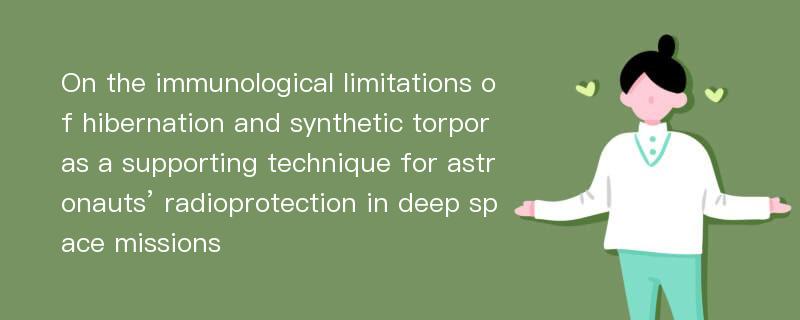
论文摘要
Although human hibernation has been introduced as an effective technique in space exploration, there are concerns regarding the intrinsic risks of the approach(i.e., synthetic torpor) and other factors involved in this procedure. Besides concerns about the brain changes and the state of consciousness during hibernation, an "Achilles heel" of the hibernation is the negative impact of torpor on factors such as the number of circulating leukocytes, complement levels,response to lipopolysaccharides, phagocytotic capacity, cytokine production,lymphocyte proliferation, and antibody production. Moreover, increased virulence of bacteria in deep space can significantly increase the risk of infection.The increased infection risk during long-term space missions with the combined effects of radiation and microgravity affect the astronauts’ immune system. With these additional immune system stressors, torpor-induced extraimmunosuppression can be potentially life threatening for astronauts.
论文目录
文章来源
类型: 期刊论文
作者: Joseph J Bevelacqua,James Welsh,Seyed Mohammad Javad Mortazavi
来源: World Journal of Immunology 2019年01期
年度: 2019
分类: 医药卫生科技,工程科技Ⅱ辑
专业: 航空航天科学与工程,特种医学,军事医学与卫生
单位: Shiraz University of Medical Sciences,Department of Diagnostic Imaging, Fox Chase Cancer Center
分类号: R85
页码: 1-4
总页数: 4
文件大小: 467K
下载量: 7
